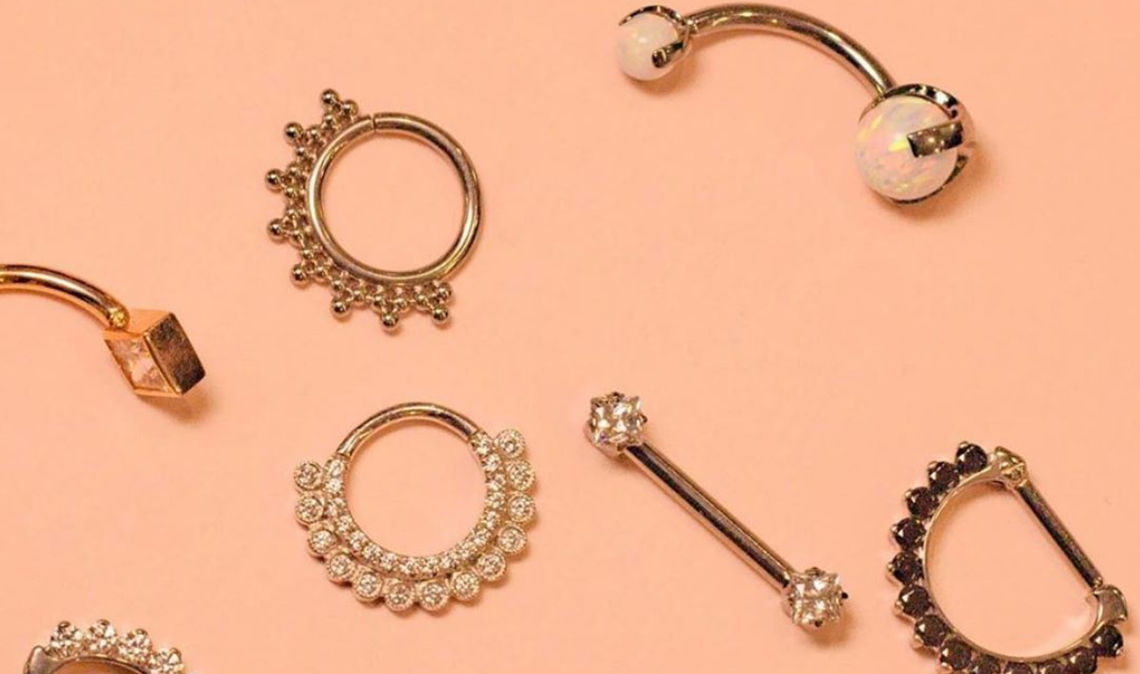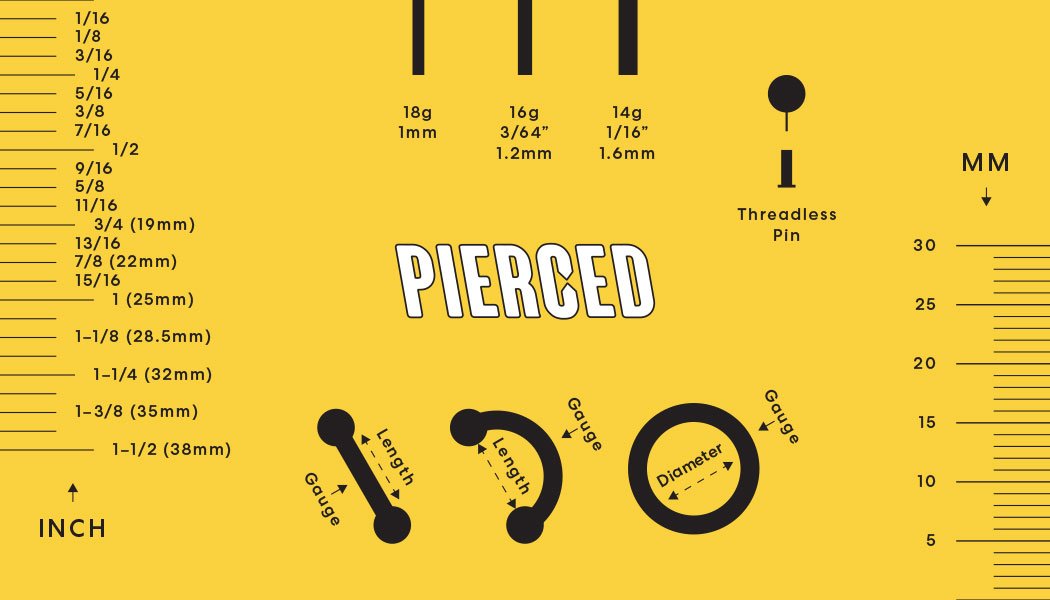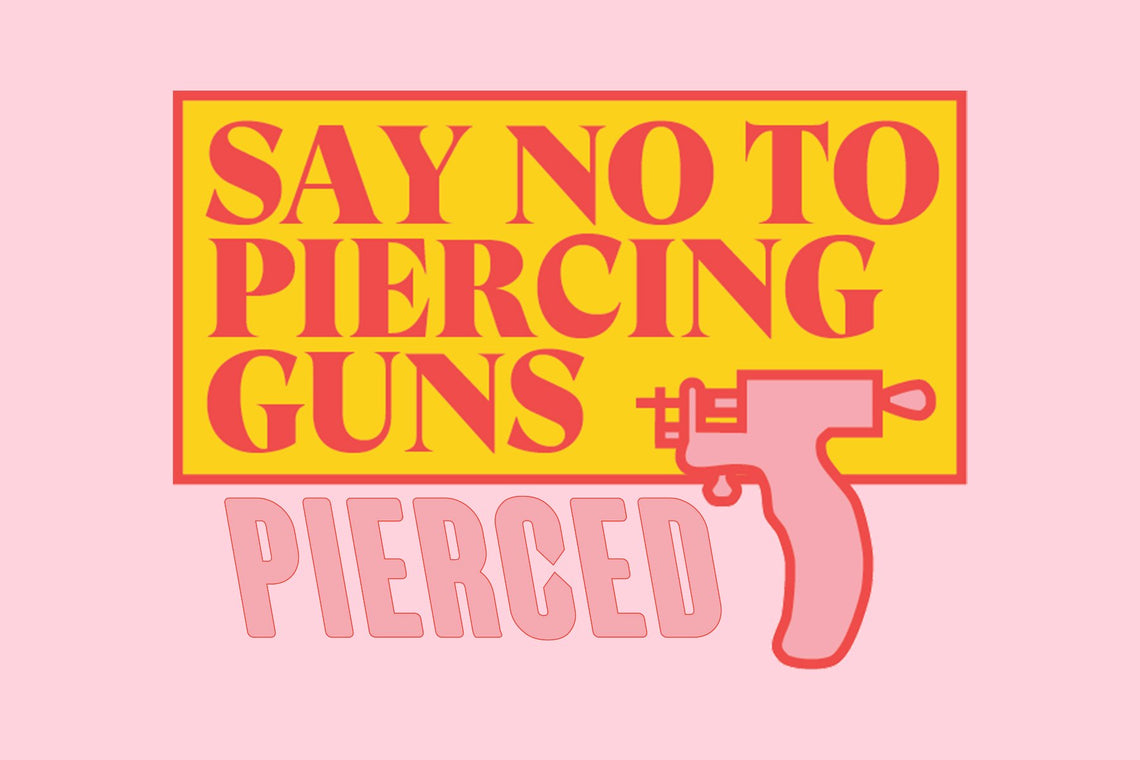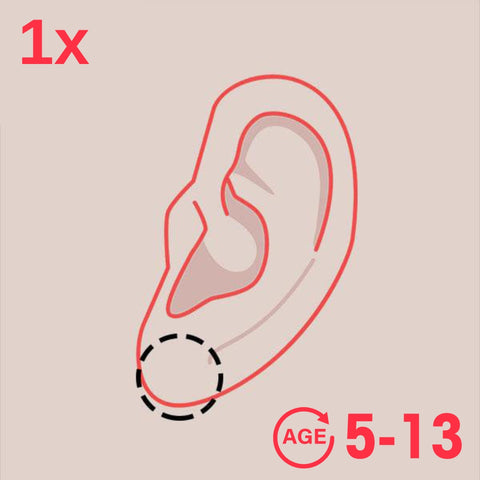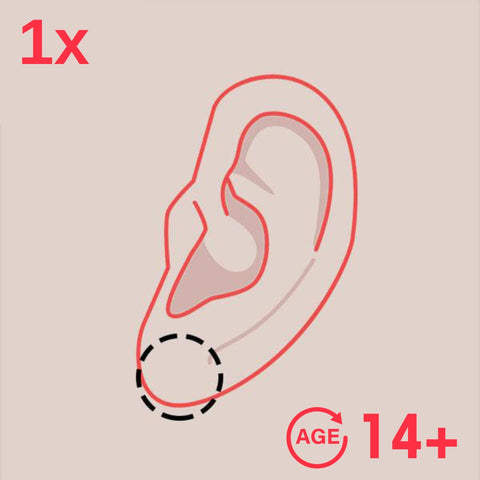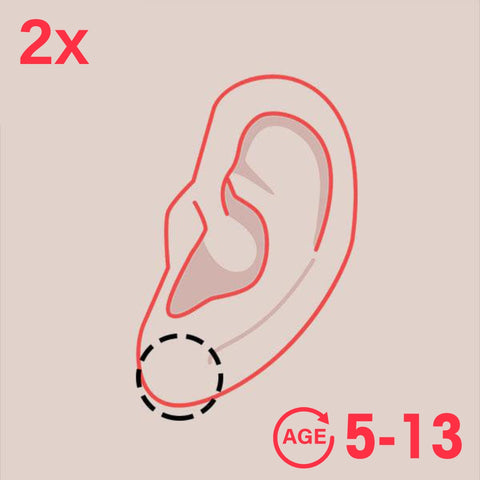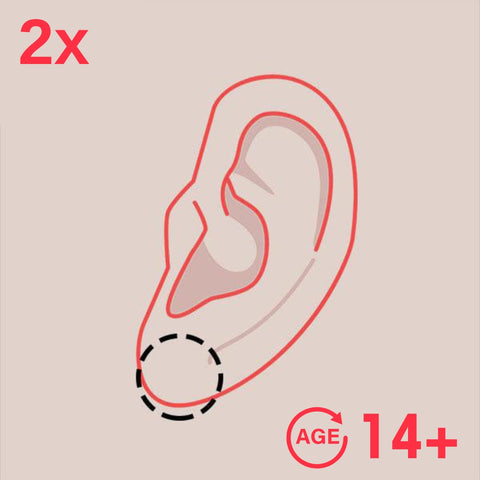There are few things more cringe-worthy to a piercing artist than an improperly cared for piercing. One of the main reasons why people neglect cleaning their piercings is a lack of education from their piercers. It’s why our piercers always provide an aftercare plan and instructions on how to clean piercings.
Even with the right knowledge, sometimes care falls to the wayside. We’ve all been there, the first few days piercing aftercare is a top priority. But as the initial excitement wears off, it starts to feel more like a chore. Regardless, proper aftercare is important throughout the entire healing period.
Regular cleaning isn’t just to prevent infections. It helps your piercing heal faster and heal properly so you get the look you want. As well, it minimizes discomfort during the healing process.
Here’s what you need to know to properly clean your body piercings:
How to Clean Piercings
Wash Your Hands!
 The first step in cleaning piercings is to wash your hands. It sounds simple, and it is. But it’s one of the most common mistakes people make.
The first step in cleaning piercings is to wash your hands. It sounds simple, and it is. But it’s one of the most common mistakes people make.
Even if your hands look clean they may carry bacteria and transfer it to your piercing. This can result in infection or irritation. Most bacteria are effectively removed by washing your hands with soap and warm water.
Cleaning With Soap
Once per day you should clean your piercing with a mild soap. Soaps containing the ingredient triclosan should be avoided. Our recommendation is PurSan, a medical-grade antimicrobial soap specifically designed for piercings. You can also purchase clear, unscented glycerin soap from a pharmacy.
Gently apply a small amount of soap to the entry and exit holes of the piercing, and clean any visible parts of the jewellery. Do not push or move the jewellery.
Thoroughly rinse away all soap and residue after 30 seconds of cleaning. Air dry or carefully pat dry with a paper towel. Avoid cloth and reusable towels as they can carry bacteria.
In addition to cleaning with soap, you should use daily salt soaks to improve healing.
Use A Salt Soak
You should use a salt soak one to two times per day. In addition to cleaning the piercing, it helps to relieve swelling or discomfort. You can mix a salt soak yourself, but it’s important to follow the instructions properly.
Preparation:
- 1 Cup boiled or distilled warm water
- ¼ Teaspoon non-iodized sea salt
- Clean paper towel or gauze pad
Instructions:
 Dissolve the sea salt into the water.
Dissolve the sea salt into the water.- If using boiled water allow it to cool enough that it won’t irritate or burn your skin (although you still want it to be warm).
- Soak the gauze pad in the solution.
- Gently apply the pad to both sides of your piercing.
- Leave in place for 5-10 minutes.
- Carefully rinse with warm water to remove salt.
- Dispose of the remaining salt solution.
Notes:
- Table salt is not an adequate replacement for sea salt.
- Using boiled or distilled water is important to prevent transferring bacteria through the soak.
- Stick to the salt ratio. Using too much sea salt can cause irritation.
- Prepackaged sterile saline solutions can be used for soaks. We recommend NeilMed. If you buy a saline solution from a pharmacy ensure the only ingredients are Sodium Chloride and water, and that it is labelled as a saline wound wash.
How Often Should I Clean My Piercing?
The soap cleaning should be done once per day and salt soaks one to two times per day. As important as it is to clean piercings, you don’t want to overdo it.
Cleaning your piercing means touching your piercing, and too much touching will irritate it. This is especially true during the first couple of weeks of healing.
Some piercers even recommend sea salt sprays, so you can avoid touching the piercing during cleaning. However, the topic has some debate. Some say sprays should be used in addition to saline soaks, and others advise against them entirely. Ask your piercer for a recommendation.
Piercing Cleaning Products to Avoid
If you can name it, someone has tried to use it to clean their piercings. Just about everything has been tried, and we’ve found that simple is best. In general, the more ingredients a product has, the greater a chance it contains an irritant. Some common piercing cleaning products you should avoid include:
- Rubbing Alcohol
- Peroxide
- Antibacterial Soap
These products sound like a good idea at first glance. After all, they kill any harmful bacteria. But they’re indiscriminate, they also kill off the good bacteria your piercing needs to heal properly. As well, these are harsh products that can damage or irritate the sensitive area in and around a fresh piercing.
Ask The Piercing Experts
When you get pierced in our Newmarket studio our experts provide you with a clear plan and instructions for cleaning and caring for your piercing. They're happy to ask any questions you have during the piercing or throughout aftercare.
Piercing Studios Near You
Mississauga
Square One Shopping Centre
100 City Centre Drive, Mississauga,
ON L5B 2C9
Phone
+1 (905) 232 -7226
Need an Experienced Piercer in Mississauga?
Working with an experienced piercer can make all the difference when it comes to your piercing experience. If you’re in the Mississauga, Ontario area and have any questions about ear piercing, body piercing or jewelry, give us a call or stop by our piercings studio today. We’d love to help walk you through what to expect and help you choose the right option.



 Dissolve the sea salt into the water.
Dissolve the sea salt into the water.